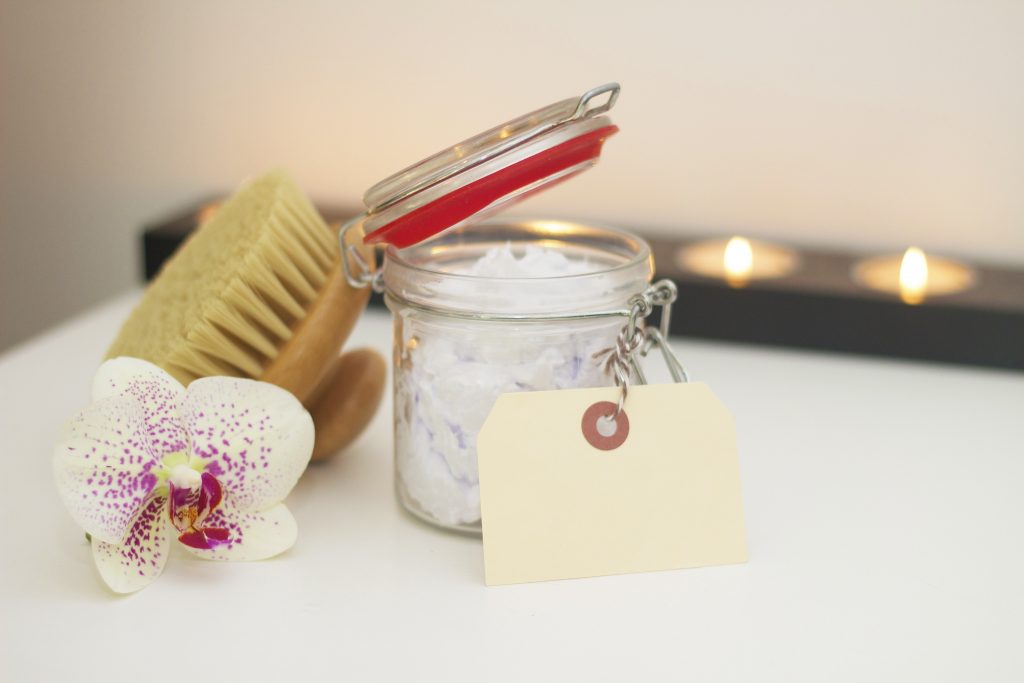فَبِأَيِّ آلَاءِ رَبِّكَ تَتَمَارَىٰ –
Then which of your Lord’s favours will you deny? (Surah An-Najm, Ayah 55)
From the air we breathe to the clothes we wear and the livelihood we earn and enjoy, there are numerous blessings we have from Allah SWT. We, in our ignorance, often forget that all we have and all we are is a blessing from Allah and start to believe we have earned it. One such blessing which is often “owned” and more often abused by us is our own body. We take our own self granted because it is the only thing we believe truly ours. And it is a very human tendency to not take care of what we believe is ours – whether it is things or people. Don’t believe me? Think of the house you had on rent and compare it to the house you own. How careful were you with that rented space? After all, you were supposed to give it back to the landowner in a few months or years.
When we believe we own our bodies, we forget to take care of it. We take it for granted. Many a time, we are so busy looking after the needs of others and our own commitments that we forget that we are ignoring the needs of our own selves.
Self-care is no new term. It has been around the field of self-help, mental health and well-being for years now. Actually, it is a quite popular moniker thrown around by any and everyone nowadays. But do we truly understand what self-care is about? How do we find the time to indulge in self-care? Do I need to buy something for it? Isn’t it selfish?
Let’s understand these issues…
What is self-care?
Self-care is a pretty common and popular term. To quote Psych Central, “Self-care is any activity that we do deliberately in order to take care of our mental, emotional, and physical health. Although it’s a simple concept in theory, it’s something we very often overlook. Good self-care is key to improved mood and reduced anxiety. It’s also key to a good relationship with oneself and others.”
The article also explains that it is very important to know what self-care is not. It simply surmises that, self-care is something that adds to our lives, not takes away from it.
This should suffice to understand that you do not need some elaborate rituals and several hundred products to indulge in self-care. It can be, and, in fact, is the simple things in life.
It is about living a balanced life where while you care for others, you find time for yourself. And no, it isn’t selfish when done in moderation. One must remember that our ummah is supposed to be balanced.
“Thus, have We made of you an Ummat justly balanced, that ye might be witnesses over the nations.” (Surah Al Baqarah, 143)
So, as we take our time to work and care for others, we must find some amount of time for ourselves.
What are the Benefits of Self-Care?
Improves Self-Esteem
It is no wonder that self-care helps with our self-esteem. When we take care of ourselves we are basically telling ourself, “You are worth the time and effort. You are cared for and you deserve to be cared for.” This might seem like a simple thing on text but has a tremendous effect on our mental health. Our self-awareness is increased and this helps us not only to do what we like but also help us find new areas of interest and even find new passions. Overall, this will develop a positive mindset and improve your mental health.
Improves Physical Health
We have discussed previously in another of our tools to improve your mental health article that physical and mental health are interrelated.
A healthy mind resides in a healthy body
As you will read further, taking care of your body is an essential part of self-care and this eventually leads to a healthier body. A fit body helps with self-esteem and mental health. This is one cycle that you don’t want to break.
Improves Your Ability to Care for Others
It may seem a bit paradoxical to mention this as a benefit for self-care. But I know that many of us, especially mothers and women with caregiver roles cannot reconcile with the idea of taking a break from it all to indulge for their own self. It just doesn’t fit in the way we are wired. However, self-care is that essential break from your daily life and stress that ensures that there are no clogged or rusted parts in your well-functioning machine. It helps you to rejuvenate so that you can come back with a bang.
How to Self-Care?
It is a mix of amusing and sad when you realize that many people do not know how to take care of themselves. These people, would usually be people caring for others efficiently and seamlessly.
So what do you need to know before you enter on the journey of self-care? Start with these three golden and simple rules:
- Stick to the basics: Don’t go with something elaborate. Yeah, the ten-step skincare routine will seem classy but you need to acknowledge that it is something that will cost more than benefit. First, it will require the ten products and then the time. If you are unable to do it consistently, then you will feel worse than you did before you started.
- Plan the care: Like many things in life you have to schedule and plan self-care, it will not just happen. Keep a day in the week for you, and at least fifteen minutes every day – notice how great a difference it makes!
- Be conscious: Don’t make self-care a monotonous chore. Be aware of what you are doing, how you are doing it and how it affects you. Don’t be afraid to change things up or do your own thing. You don’t have to play by the book with self-care. It is your time and yours to do what benefits you.
A Guide for Muslim Self-Care
I won’t leave you stranded without giving at least some tips and tricks for your self-care routine. Now, what I would suggest is divide your self-care into three factions. The three most important factions in the life of a Muslim: Physical, Mental and Spiritual. Now, some things you do will overlap in all three realms – and that’s good! Just do what you want to and can do. Remember – self-care should benefit not cost you.
Physical Care
Physical care comes as something quite obvious. It is taking care of your body. Now, I am not saying that you should buy products and machines to assist you here. Self-care can be as simple and essential as getting a full night’s sleep and taking a healthy diet. Here are some things you can do:
- Get a good night’s sleep
- Exercise
- Take a morning walk
- Take a bath and tend to your skin and hair
- Pursue a sport or a game
- Get regular medical check-ups
Mental Care
Mental health care is something that has many myths attached to it. People are often scared when the term mental health comes up and expect some mammoth tasks. But actually, a good mental health routine is quite simple. For example, enough sleeping hours and a morning walk work wonders for your mental health.
- Say “No” when overwhelmed
- Take a break when tired
- Observe and contemplate over nature
- Take time alone
- Use relaxation techniques
- Keep a diary or journal and write down any and all of your thoughts whenever you feel like sharing something, whether it’s good or bad.
- Take some extra time in the shower. Bathe yourself twice and condition your hair after you rinse out your shampoo. Then, turn your back to the water, close your eyes, and feel the water run down your back as you take deep breaths.
- Drawing or colouring can be a wonderful way to relax and wind down from the day. Colour in a colouring book, or do some watercolour.
- Partake in a social activity
- Buy yourself a new book and read. Reading is a great way to relax, and it’s also a great way to learn new things.
- Play with your pet(s) or visit a humane society or pet store to spend time with an animal. Petting and playing with an animal is very beneficial to your mental health. It is said that listening to a cat’s purrs can relieve stress or emotional tension.
Spiritual Care
Your spiritual health and eeman is perhaps, more important than the other two discussed above. Just like exercise for physical health we need activities to keep our eeman at the top level of the game.
- A time for reflection, recognition and repentance – to deal with the sins we commit knowingly or unknowingly
- A time for reflection, recognition and gratitude – for all the blessings that we have from Allah
- Salah time – Apart from the fardh salah finding time for sunnah and nawafil salah can give you time to recharge yourself
- Listening to, reciting and reflecting on the Qur’an
- Dhikr – remembrance of Allah
- Increasing good deeds recommended by the sunnah
- Visiting a masjid or participating in dawah/charity
- Gaining knowledge/ilm
Before we part, remember the hadith quoted in Sahih Al Bukhari:
“The strong believer is more beloved to Allah than the weak believer, but there is goodness in both of them. Be eager for what benefits you, seek help from Allah and do not be frustrated. If something befalls you, then do not say: If only I had done something else. Rather say: Allah has decreed what He wills. Verily, the phrase, “if only” opens way for the work of Shaytan.”
May Allah make us among those with best of eeman and closest to Him. Aameen.



